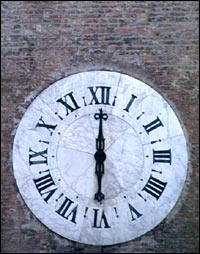British Summer Time

In 1908, the United Kingdom became the first country to adopt Daylight Saving Time
by Liz Olson
 Related Links |
In 1908, the United Kingdom became the first country to adopt Daylight Saving Time, giving it the nickname "British Summer Time." British Summer Time was controversial at the time of its introduction. Despite the resistance, BST was ultimately adopted, and has since benefited outdoor sports recreation and retailers by moving the clock forward one hour, extending the afternoon hours of daylight and shortening the morning hours.
BST is in force from the last Sunday in March until the last Sunday in October, which follows the European Daylight Saving Time schedule. The summer period begins and ends at 1:00 A.M. Greenwich Mean Time.
The Summer Time Act of 1972, originally defined the start of British Summer Time as 2:00 A.M. GMT on the third Sunday of March—unless it fell on Easter, in which case Summer Time would begin on the second Sunday that year.
In 2002, the Order of Council changed British Summer Time to fall in line with European Daylight Savings Time. Clocks now change in the United Kingdom on the last Sunday of March at 1:00 A.M., even if it falls on Easter weekend.
- More from United Kingdom Holidays
About the author







